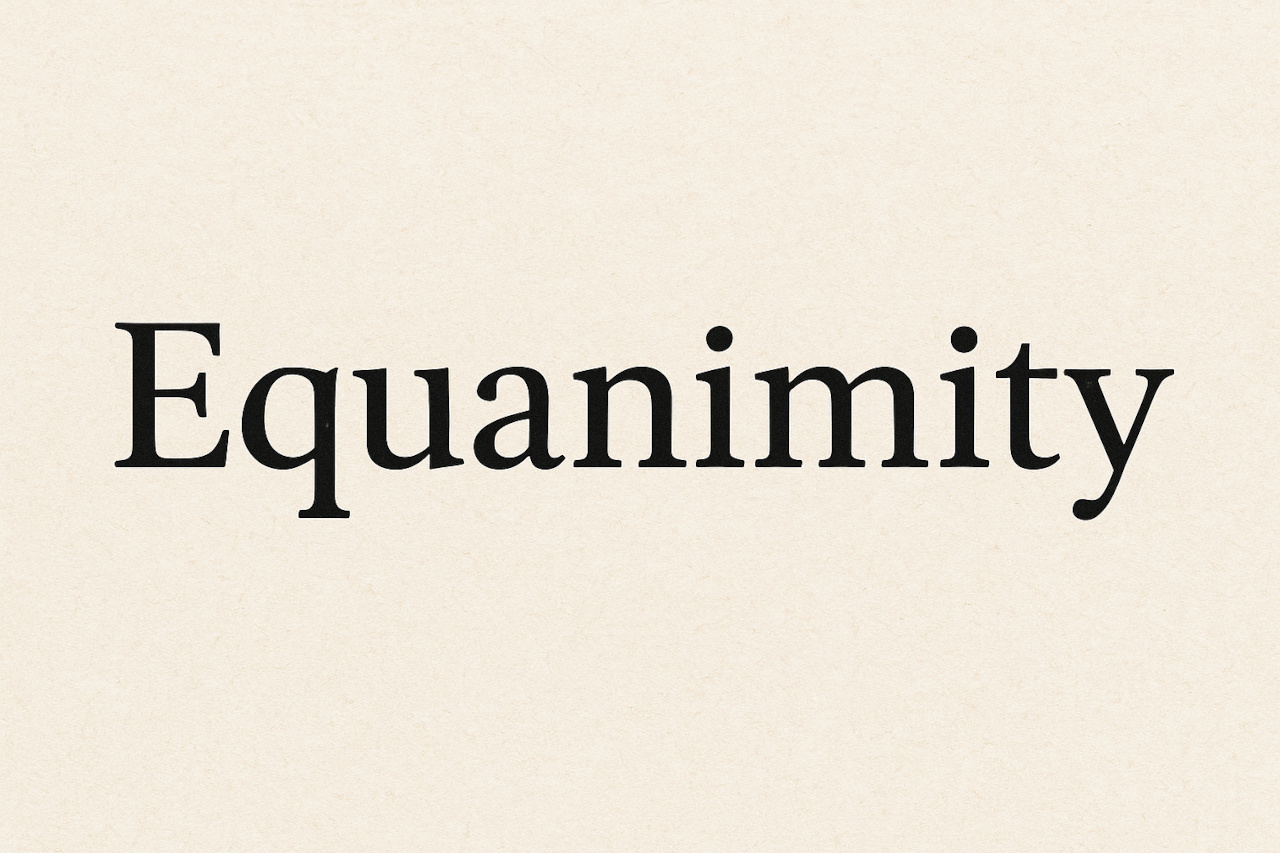Equanimity: The Definition and Meaning
Equanimity refers to a state of mental calmness, composure, and evenness of temper, especially in difficult or stressful situations. It describes the ability to maintain emotional stability and control, regardless of external pressures, challenges, or unexpected events.
Here are some contexts where “equanimity” is often applied:
- Emotional Balance: Equanimity is the quality of being emotionally balanced, not easily disturbed by highs or lows. Someone with equanimity remains composed during both positive and negative experiences.
- Stress Management: In situations of crisis, adversity, or conflict, a person who displays equanimity is able to think clearly, act rationally, and stay calm under pressure.
- Philosophy and Spirituality: Equanimity is often regarded as a virtue in various philosophical and spiritual traditions, such as Buddhism and Stoicism, where maintaining inner peace and detachment from external circumstances is emphasized.
In essence, equanimity reflects a person’s ability to stay calm, composed, and unshaken, even in the face of challenges or turmoil.
Weekly Popular
Newsletter
Subscribe to our newsletter to stay up-to-date on our latest news and announcements.







